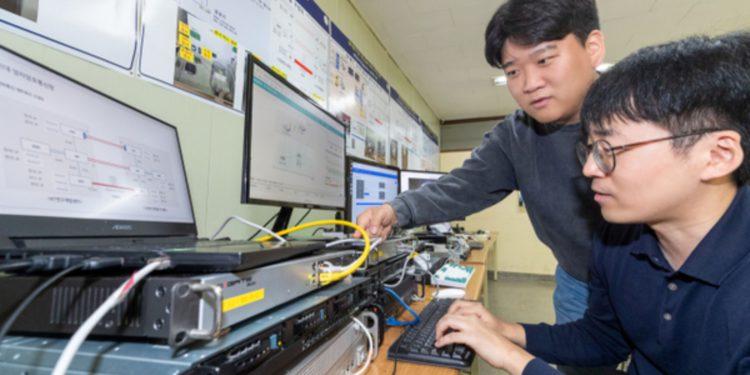KT announced the successful completion of its demonstration for a hybrid quantum security virtual private network (VPN) service. This new solution integrates quantum security technologies across both the transmission network and customer segments, with the goal of significantly enhancing data transmission security.
By combining advanced quantum encryption with traditional security protocols, the service is designed to offer strong protection against cyber threats and ensure safer data communication for customers.
KT’s quantum security demonstration network combines VPN technology with its transmission network to ensure strong protection against cyber threats. The transmission network utilizes Quantum Key Distribution (QKD) to prevent any eavesdropping on the physical communication lines.
Furthermore, the VPN utilizes Post-Quantum Cryptography (PQC), which ensures encryption that remains secure against potential decryption attempts using quantum computing. This two-layer security system is crafted to deliver enhanced protection for sensitive data.
The demonstration, which ran for about two weeks, was conducted on simulated networks established for the Ministry of National Defense and the Ministry of Land, Infrastructure, and Transport.
KT applied quantum encryption to the transmission network and used the quantum security VPN to secure the spatial information exchanged between the two ministries. The successful completion of the trial highlighted KT’s ability to integrate quantum encryption and quantum-resistant cryptography into a seamless, secure communication system.
This demonstration was part of the quantum information and communication technology project promoted by South Korea’s Ministry of Science and ICT and the National Intelligence Agency (NIA). KT conducted the tests at its R&D center and Kookmin University, verifying the service’s quality and functionality as it prepares to launch its hybrid quantum security VPN.
KT’s hybrid quantum security service integrates quantum encryption from the transmission network to the customer segment, which is a significant shift from traditional security protocols. The company anticipates that this solution will enhance communication security if applied to various sectors, particularly the public sector.
The dual-layer security of quantum encryption and post-quantum cryptography is expected to provide protection, making it more resilient against emerging cyber threats.
A KT official emphasized that the company remains committed to enhancing communication security services in response to the rapidly evolving security landscape. KT aims to play a key role in the transition to quantum security, ensuring that its services remain at the forefront of emerging technologies. The company also expressed its dedication to bolstering the capabilities of South Korea’s domestic quantum industry.
KT’s efforts in quantum security are part of its larger strategy to stay ahead of growing cybersecurity challenges. As the company prepares for the generational shift towards quantum technologies, it is working to ensure that both its services and the broader domestic quantum ecosystem are fully equipped to handle the future of secure communications.







